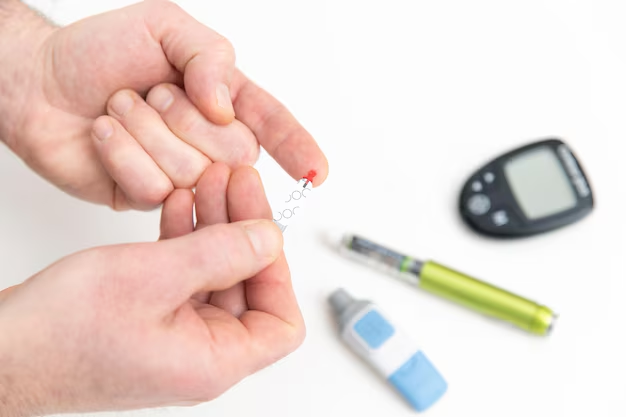Your Guide to What Is The Test For Diabetes
What You Get:
Free Guide
Free, helpful information about Diabetes FAQ and related What Is The Test For Diabetes topics.
Helpful Information
Get clear and easy-to-understand details about What Is The Test For Diabetes topics and resources.
Personalized Offers
Answer a few optional questions to receive offers or information related to Diabetes FAQ. The survey is optional and not required to access your free guide.
Understanding Diabetes Tests: Here's What You Need to Know
Diabetes is a chronic condition that affects millions worldwide, but early detection can significantly enhance management and prolong life. Knowing the test for diabetes is crucial in identifying the condition before it spirals. If you're unfamiliar with these tests, it can be daunting. Let’s walk through them, and then pivot to explore financial resources that might support management and treatment.
Key Diabetes Tests
1. Fasting Plasma Glucose Test (FPG)
The FPG is one of the most common diagnostic tests for diabetes. Patients are required to fast overnight, and their blood glucose levels are measured first thing in the morning. A result of 126 mg/dL or higher indicates diabetes.
2. Oral Glucose Tolerance Test (OGTT)
This test involves fasting overnight, then consuming a sugary drink at the doctor's office. Blood sugar levels are tested two hours after consumption. Readings showing 200 mg/dL or higher suggest diabetes.
3. Hemoglobin A1c Test (HbA1c)
Unlike the other tests, the HbA1c does not require fasting. It shows the average blood glucose level over the past two to three months. An HbA1c level of 6.5% or higher is indicative of diabetes.
4. Random Plasma Glucose Test
This test measures blood sugar without requiring fasting. A result of 200 mg/dL or higher, combined with symptoms of diabetes, confirms the diagnosis.
Why Early Detection Matters
Detecting diabetes early can prevent complications such as heart disease, nerve damage, and eye issues. It allows patients to manage their condition through lifestyle changes, medication, and regular monitoring, thus enhancing the quality of life.
Beyond Tests: Financial and Educational Resources
Early detection and treatment of diabetes can often bring financial burdens. Fortunately, there are numerous financial assistance programs and educational resources that can alleviate some of these pressures.
- Government Programs: Many countries offer support for low-income individuals needing diabetes care.
- Non-Profit Organizations: Agencies like the American Diabetes Association provide resources, including discounted medications and supplies.
- Medication Assistance Programs: Various pharmaceutical companies offer programs that can reduce the cost of diabetes medications.
- Educational Workshops: Gain knowledge on managing diabetes through local workshops or online courses, often free or low-cost.
Being informed and prepared not only helps manage the disease but can also significantly reduce the economic impact.
Financial Support and Resource Guide
🔍 Government Aid Programs
- 💡 Medicare: Covers diabetes supplies and education for eligible individuals.
- 💡 Medicaid: Offers comprehensive diabetes care for low-income people.
💊 Pharmaceutical Assistance
- 🩺 Patient Assistance Programs: Provided by most drug manufacturers to help reduce the cost of medications.
- 🩺 Generic Medication Options: Often more affordable than branded drugs.
🎓 Educational Grants and Scholarships
- 📚 Diabetes Scholar Foundation: Scholarships for high school seniors with diabetes.
- 📚 Community Workshops: Free educational opportunities available at community health centers.
Taking proactive steps to understand, test, and manage diabetes can lead to a healthier life. Couple that with tapping into available financial and educational resources, and you have a powerful combination for stability and well-being.
What You Get:
Free Diabetes FAQ Guide
Free, helpful information about What Is The Test For Diabetes and related resources.

Helpful Information
Get clear, easy-to-understand details about What Is The Test For Diabetes topics.

Optional Personalized Offers
Answer a few optional questions to see offers or information related to Diabetes FAQ. Participation is not required to get your free guide.


